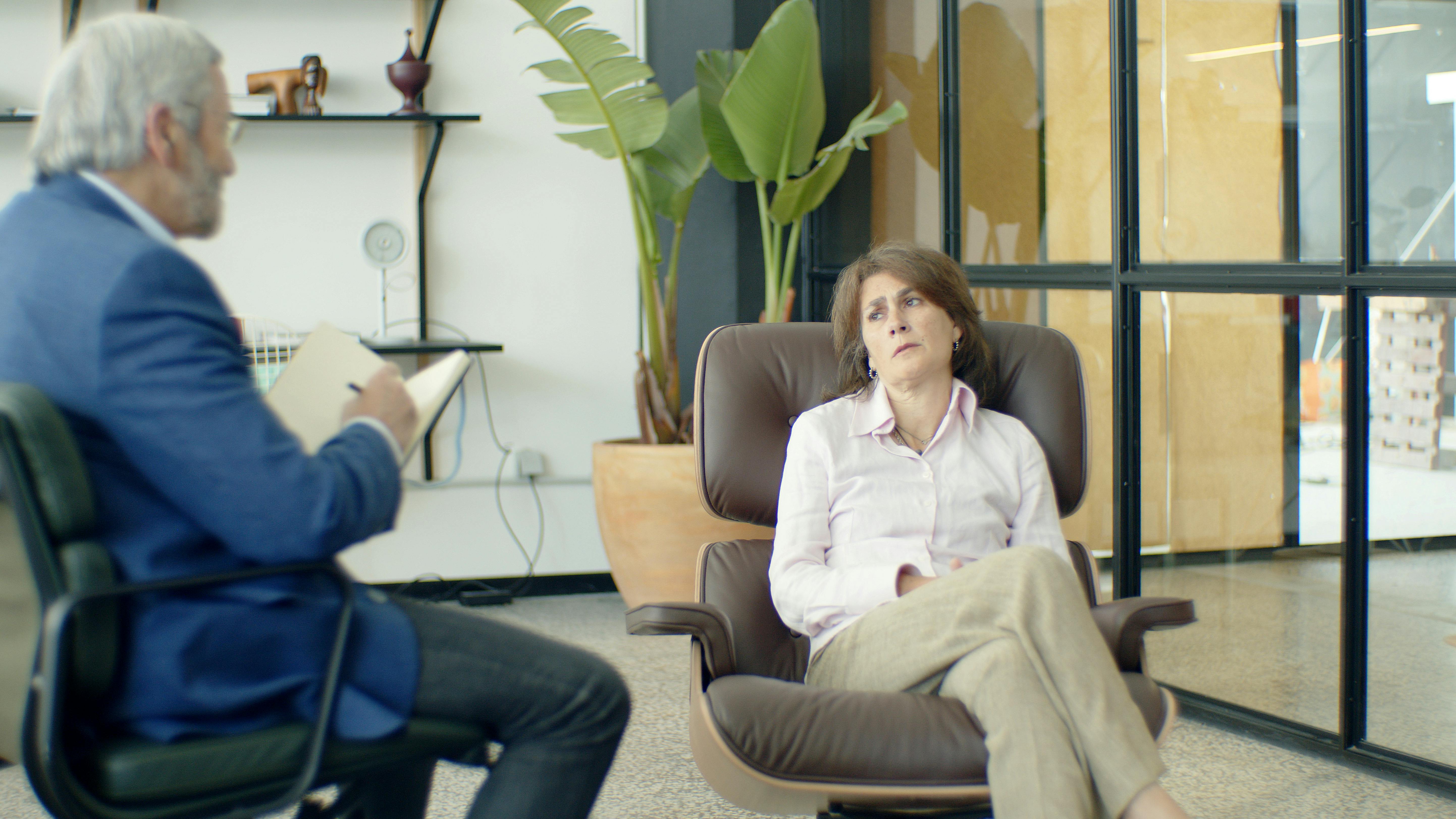If you find yourself in a situation where supervised visitation is being considered, it’s important to understand the reasons behind this arrangement. Supervised visitation is not meant to be punitive, but rather a way to ensure the safety and well-being of the child involved. In this article, we will explore some of the key reasons why supervised visitation is necessary, providing you with a clear understanding of the importance of this arrangement in certain circumstances.

Safety Concerns
History of Abuse
When there is a history of abuse between parents or towards children, safety becomes a paramount concern. Supervised visitation offers a solution to ensure the safety and well-being of the child involved. By having a neutral third party supervise the visitation, the risk of potential abuse or harm is minimized.
Substance Abuse
Substance abuse can significantly affect a parent’s ability to provide a safe environment for their child. In cases where a parent struggles with addiction, supervised visitation allows for proper monitoring and ensures that the child is not put at risk. This arrangement helps prevent exposure to drugs or unsafe situations that may arise due to the parent’s substance abuse.
Mental Health Issues
Issues related to mental health can impact a parent’s ability to maintain a safe and stable environment for their child. In situations where a parent struggles with mental health conditions, supervised visitation can ensure that the child’s well-being is protected. By having a trained supervisor present, potential risks or challenging behaviors can be addressed promptly, maintaining a safe visitation experience for all parties involved.
Conflict Resolution
High Level of Conflict
In situations where there is a high level of conflict between parents, supervised visitation provides an opportunity to reduce tension and create a more peaceful environment for the child. By introducing a neutral third party to supervise the visitation, this arrangement minimizes the chances of conflicts escalating and negatively impacting the child’s well-being. It allows the parents to focus on the child’s needs and maintain a smoother visitation process.
Protecting Children from Conflict
Children are highly sensitive to conflict between their parents, and it can have detrimental effects on their emotional and psychological well-being. Supervised visitation acts as a protective measure to shield children from conflict and provide them with a safe space to interact with their non-custodial parent. This setup promotes a healthier parent-child relationship and minimizes any negative effects associated with exposure to ongoing conflicts.

Parental Alienation
Signs of Parental Alienation
Parental alienation refers to situations where a child is manipulated or influenced to reject or fear one parent. Signs of parental alienation may include the child consistently making negative or false statements about one parent, expressing fear or anger towards the alienated parent without any reasonable justification, or showing a sudden change in their relationship with the parent.
Rebuilding Trust
Supervised visitation offers an opportunity for parent-child relationships affected by alienation to rebuild trust and reconnect on a positive level. By having supervised sessions, a neutral supervisor can provide guidance and support to ensure that interactions are focused on rebuilding the parent-child bond rather than reinforcing alienation. This process can help alleviate the negative effects of parental alienation and promote healthier relationships moving forward.
Protecting the Parent-Child Relationship
Supervised visitation acts as a safeguard for the parent-child relationship when one parent attempts to undermine or restrict the child’s access to the other parent. It ensures that the child continues to have regular contact with both parents while working towards resolving any existing issues. Supervision allows for a fair and balanced approach, protecting the child’s right to maintain a meaningful relationship with both parents despite attempts at alienation.
Physical or Emotional Harm
Domestic Violence
In cases involving domestic violence, the safety of the child is of utmost importance. Supervised visitation ensures that the abusive parent does not have direct and unsupervised contact with the child, reducing the risk of further harm or trauma. It allows for the child to maintain a relationship with the non-abusive parent while providing a safe environment for visitation to take place.
Neglect
Supervised visitation can also be necessary in cases where there are concerns about neglectful parenting. Whether due to a history of neglect or current circumstances, supervised visitation allows for a trained third party to monitor the visit and provide guidance if necessary. This arrangement ensures that the child’s well-being is prioritized and that their needs are adequately met during the visitation.
Endangerment
In situations where there are circumstances that may endanger the child, such as hazardous living conditions or a disregard for their safety, supervised visitation serves as a protective measure. By providing a supervised setting, the child’s physical and emotional well-being can be closely monitored, reducing the risk of any immediate danger. This arrangement enables the child to have contact with the parent while prioritizing their safety and security.

Supervised Transition
Adjusting to New Custody Arrangement
When a custody arrangement changes, such as during or after a divorce, children may need support during the transition period. Supervised visitation helps children adjust to the new custody arrangement by providing them with stability and consistency. This arrangement allows for initial visits to be supervised to ensure a smooth transition for the child during this challenging period.
Ensuring Smooth Transition
By having a neutral third party supervise the transition from one parent to another, the potential for conflict or tension between parents is minimized. This smooth transition is crucial for the child’s emotional well-being, as it reduces stress and anxiety associated with custody exchanges. Supervised transitions provide a calm and controlled environment, ensuring that the child’s safety and emotional needs are prioritized.
Supporting the Child’s Emotional Well-being
Supervised visitation also addresses the child’s emotional well-being during the transition process. Having a supervisor present helps create a supportive environment where the child feels comfortable expressing their emotions and concerns. This support promotes healthy emotional development and aids in the child’s ability to adjust to the new custody arrangement successfully.
Child’s Special Needs
Medical or Behavioral Health Conditions
When a child has special medical or behavioral health needs, supervised visitation can help ensure their safety and well-being during visitation. A trained supervisor can provide the necessary support and assistance to address any specific needs that may arise. This arrangement allows parents to focus on meeting their child’s unique requirements while providing a structured and secure visitation environment.
Child’s Physical Safety
Children with special needs may have limited abilities to protect themselves physically. Supervised visitation offers an added layer of protection to help ensure the child’s physical safety. The presence of a trained supervisor can prevent accidents, injuries, or situations where the child’s well-being may be compromised. This arrangement allows parents to have peace of mind and reassurance that their child is in a secure environment.
Parental Incarceration
Ensuring Child Safety
When a parent is incarcerated, supervised visitation provides a way to ensure the child’s safety and welfare during visitation. By having a trained supervisor present, any potential risks or concerns can be identified and addressed promptly. This arrangement safeguards the child from being exposed to any harmful or unsafe situations that may arise as a result of the parent’s incarceration.
Maintaining Parent-Child Bond
Despite parental incarceration, maintaining a healthy parent-child bond is crucial for the child’s overall well-being. Supervised visitation allows for continued contact between the incarcerated parent and the child, providing opportunities for maintaining a meaningful relationship. It also serves as a support system, ensuring that both the parent and child have access to necessary resources and guidance during this challenging time.
Reintroduction after Release
Supervised visitation assists in the reintroduction process when a parent is released from incarceration. This gradual approach helps ensure a smooth transition for the child and the parent. The presence of a neutral supervisor can help ease any anxieties or concerns that may arise, facilitating the rebuilding of the parent-child relationship and providing necessary support during this critical phase.
Supervised Drug Testing
Protecting Child from Substance Abuse
For parents struggling with substance abuse issues, supervised drug testing can be implemented to ensure the child’s safety. Supervised visitation allows for regular testing to monitor the parent’s sobriety and protect the child from potential harm. This arrangement ensures that the child is only exposed to a parent who is free from the influence of drugs or alcohol.
Ensuring Parental Sobriety
Supervised visitation acts as an accountability measure by ensuring that parents struggling with substance abuse remain sober during visitation. The presence of a supervisor, combined with regular drug testing, creates a safe environment for the child and encourages the parent to prioritize their recovery. This process supports the parent’s journey towards sobriety while safeguarding the child’s well-being.
Supervised Exchange
Minimizing Contact between Conflicted Parents
Supervised exchange of children between conflicted parents aims to minimize direct contact and potential conflicts. By having a neutral third party oversee the exchange, the chances of confrontations or heated arguments between parents are significantly reduced. This arrangement aims to create a more peaceful and stress-free exchange process for all parties involved, with the child’s best interests as the primary focus.
Reducing Tension during Exchange
Supervised exchanges help reduce tension and minimize the emotional impact on the child during custody exchanges. Having a trained professional present can help diffuse any potential conflicts that may arise, ensuring that the child witnesses a smooth and less stressful transition between parents. This approach promotes a more positive environment for the child and facilitates a healthier co-parenting relationship.
Court Orders
Judge’s Decision
Supervised visitation is often ordered by a judge based on the unique circumstances of each case. Judges carefully consider the best interests of the child when making decisions regarding visitation arrangements. When safety or well-being concerns are present, a judge may order supervised visitation to protect the child and ensure their physical and emotional welfare. The judge’s decision is aimed at creating the most suitable arrangements for the child’s needs.
Temporary Provisions
Supervised visitation may be established as a temporary provision in court orders. This decision allows for a more thorough assessment of the situation, ensuring that the child’s safety and well-being are appropriately addressed. Temporary supervised visitation provisions provide an opportunity for the involved parties to work towards resolving any underlying issues while keeping the child’s interests at the forefront.
In conclusion, supervised visitation serves as a necessary and valuable tool to address a wide range of safety concerns and ensure the well-being of children in various circumstances. By providing a structured and monitored environment, supervised visitation helps protect children from potential harm, promotes healthy relationships between parents and children, and offers support through challenging situations. It allows for the best interests of the child to remain at the forefront, ensuring their safety, emotional well-being, and overall healthy development.
